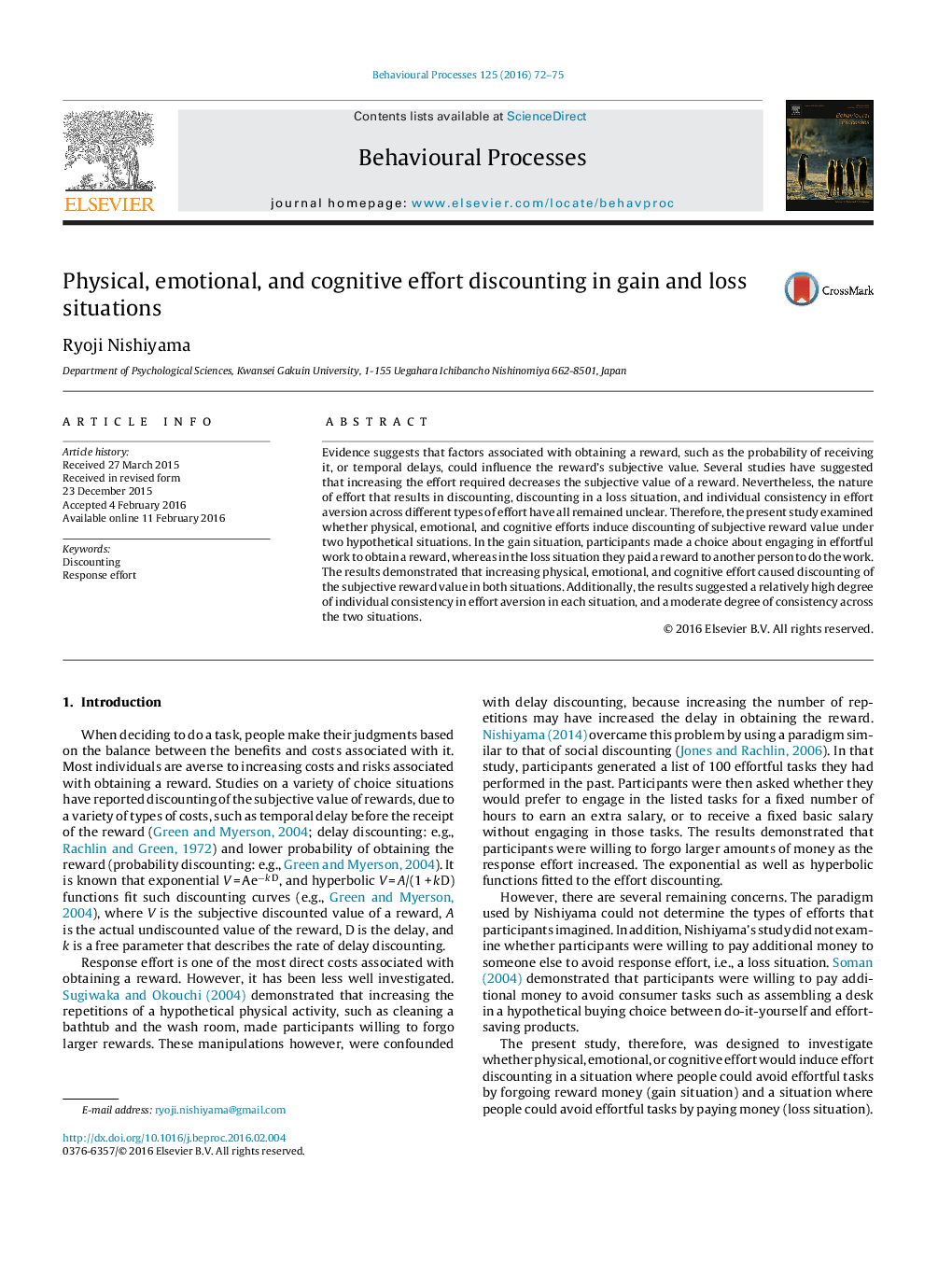| Article ID | Journal | Published Year | Pages | File Type |
|---|---|---|---|---|
| 2426402 | Behavioural Processes | 2016 | 4 Pages |
•This study examines an effect of physical, emotional, and cognitive effort on the subjective value of the reward in gain and loss situations.•Increasing response effort increases the amount of money forgone and pay to avoid engaging in a task.•Furthermore, there is an individual consistency in effort aversion in each situation.
Evidence suggests that factors associated with obtaining a reward, such as the probability of receiving it, or temporal delays, could influence the reward’s subjective value. Several studies have suggested that increasing the effort required decreases the subjective value of a reward. Nevertheless, the nature of effort that results in discounting, discounting in a loss situation, and individual consistency in effort aversion across different types of effort have all remained unclear. Therefore, the present study examined whether physical, emotional, and cognitive efforts induce discounting of subjective reward value under two hypothetical situations. In the gain situation, participants made a choice about engaging in effortful work to obtain a reward, whereas in the loss situation they paid a reward to another person to do the work. The results demonstrated that increasing physical, emotional, and cognitive effort caused discounting of the subjective reward value in both situations. Additionally, the results suggested a relatively high degree of individual consistency in effort aversion in each situation, and a moderate degree of consistency across the two situations.
